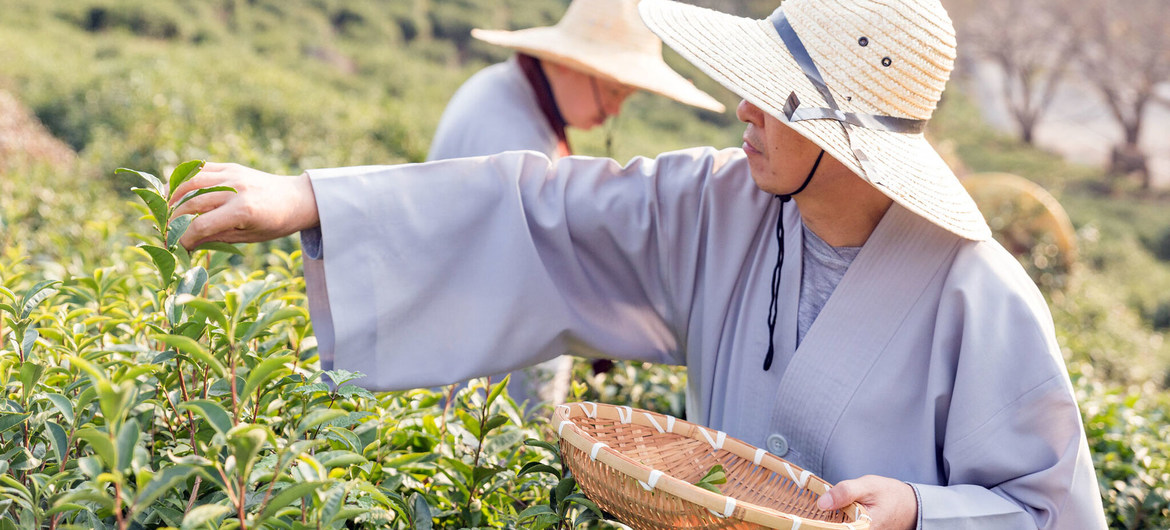
New York: A ‘business as usual' approach is no longer an option, the head of the UN agriculture agency said on Tuesday, launching a new plan to move past the coronavirus pandemic.
"We must work very hard to limit COVID-19's damaging effects on food security and nutrition”, QU Dongyu, Director-General of the Food and Agriculture Agency (FAO) said in his opening remarks launching the new strategy: “We need to be more country-driven, innovative and work closely hand in hand”.
FAO’s comprehensive COVID-19 Response and Recovery Programme aims to avert a global food emergency during and after the pandemic while simultaneously working on medium to long-term development responses for food security and nutrition.
To provide a coordinate response that ensures access to nutritious food globally, resources and partnerships must be mobilize at country, regional and global level, requiring a $1.2 initial investment.
The new programme aims to mitigate the immediate impacts of the pandemic while strengthening the longer-term resilience of food systems and livelihoods.
“This is how FAO has built its COVID-19 comprehensive response and recovery programme, and today we are asking you to join us", said the FAO chief.
Food security hangs in balance
In addition to being a major public concern, the pandemic also imperils global food security.
According to World Bank's estimates, the economic impact of the crisis could push some 49 million more people into extreme poverty.
Furthermore, soaring unemployment rates, income losses and rising food costs not only jeopardize food access in both developed and developing countries but also have long-term effects on food security.
Key response areas
The report lays out seven priorities to enhance food system and minimize COVID-19 effects on food security.
• Reinforce a global humanitarian response plan for COVID-19.
• Improve data for decision-making,
• Ensure economic inclusion and social protection to reduce poverty.
• Bolster trade and food safety standards.
• Boost smallholders’ ability to recover.
• Strengthen a “One Health” approach to prevent the next zoonotic pandemic
• Transform how food systems work
And as COVID-19 plunges national economies into recession, with more to come, countries must urgently act to mitigate the longer-term impacts on food systems and food security.
Meanwhile existing crises – such as conflict, natural disasters, climate change and plagues – that are already stressing food systems and triggering food insecurity around the globe, are compounding a precarious situation.
Reading the future
FAO is asking governments to better understand emerging trends, pinpoint any lapses and provide technical advice and capacity development across a wide range of disciplines. In addition, it is offering more investment support.
“The Food Coalition is an exemplary approach to leveraging high-level capital and political will to avoid an escalation of the pandemic from a health crisis to a food crisis", FAO Deputy Director-General Beth Bechdol told the meeting, amidst a warning that "immense” efforts will be needed ahead.
Support Our Journalism
We cannot do without you.. your contribution supports unbiased journalism
IBNS is not driven by any ism- not wokeism, not racism, not skewed secularism, not hyper right-wing or left liberal ideals, nor by any hardline religious beliefs or hyper nationalism. We want to serve you good old objective news, as they are. We do not judge or preach. We let people decide for themselves. We only try to present factual and well-sourced news.







